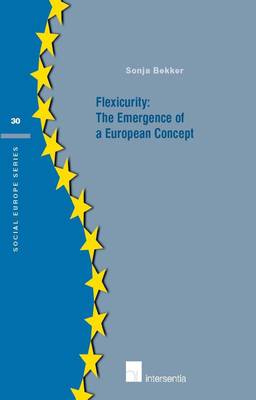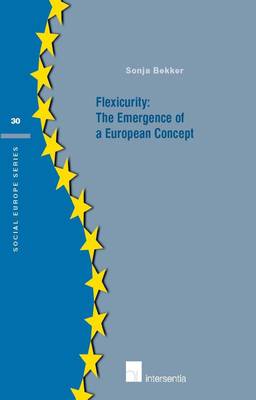
- Afhalen na 1 uur in een winkel met voorraad
- Gratis thuislevering in België vanaf € 30
- Ruim aanbod met 7 miljoen producten
- Afhalen na 1 uur in een winkel met voorraad
- Gratis thuislevering in België vanaf € 30
- Ruim aanbod met 7 miljoen producten
Omschrijving
Flexicurity has been a core concept in the EU's employment debates as of 2006 and was codified into common principles of flexicurity in December 2007. Flexicurity remains an important part of the Europe 2020 Strategy and the flagship agenda for new skills and jobs, and is seen as an alternative for one-sided liberalisation tendencies. This study explains the development and conclusion of the EU's flexicurity concept. How did actors finally come to agree on such a complex and sensitive issue? The study first derives theoretical preconditions for the emergence of flexicurity from new governance theory and flexicurity literature and adds as an alternative explanatory theory the concept of power. The research combines the process tracing and congruence techniques to analyse the policy-making process, including elite interviews with core policy-makers and documents analyses. The study found more than 20 factors to explain for the emergence of flexicurity, suggesting that a wide variety of variables which interact in a complex web of events and actions form the basis of any flexicurity agreement. This includes the involvement of actors in developing the concept, the exchange of ideas and viewpoints, and taking an integrative and balanced approach to labour market problems and its solutions. Viewing the whole process, both elements of new governance and of the role of power contribute to explaining the emergence of the EU's flexicurity concept. The appropriateness of both new governance and political theories suggests that these theories may complement each other in explaining the flexicurity outcome.
About the book
'Bekker's book is a welcome addition to the growing body of literature examining the EU's soft law and new governance techniques. She provides a fascinating account of the EU level debates that resulted in the adoption of a European flexicurity concept. Her robust methodology allows her to draw a number of interesting albeit somewhat limited conclusions. Her in-depth account of events at times leaves little room for a discussion of the merits of the concept itself. Such criticism should not however detract from the high quality of this book which, for its historical overview alone, is worthy of being read. Such a detailed overview of a European policy-making process will no doubt benefit other scholars working in this area.'
Rebecca Zahn in CMLR (2014) 715
Specificaties
Betrokkenen
- Auteur(s):
- Uitgeverij:
Inhoud
- Aantal bladzijden:
- 334
- Taal:
- Engels
- Reeks:
- Reeksnummer:
- nr. 30
Eigenschappen
- Productcode (EAN):
- 9781780680910
- Verschijningsdatum:
- 30/10/2012
- Uitvoering:
- Paperback
- Formaat:
- Trade paperback (VS)
- Afmetingen:
- 160 mm x 240 mm
- Gewicht:
- 576 g

Alleen bij Standaard Boekhandel
Beoordelingen
We publiceren alleen reviews die voldoen aan de voorwaarden voor reviews. Bekijk onze voorwaarden voor reviews.











